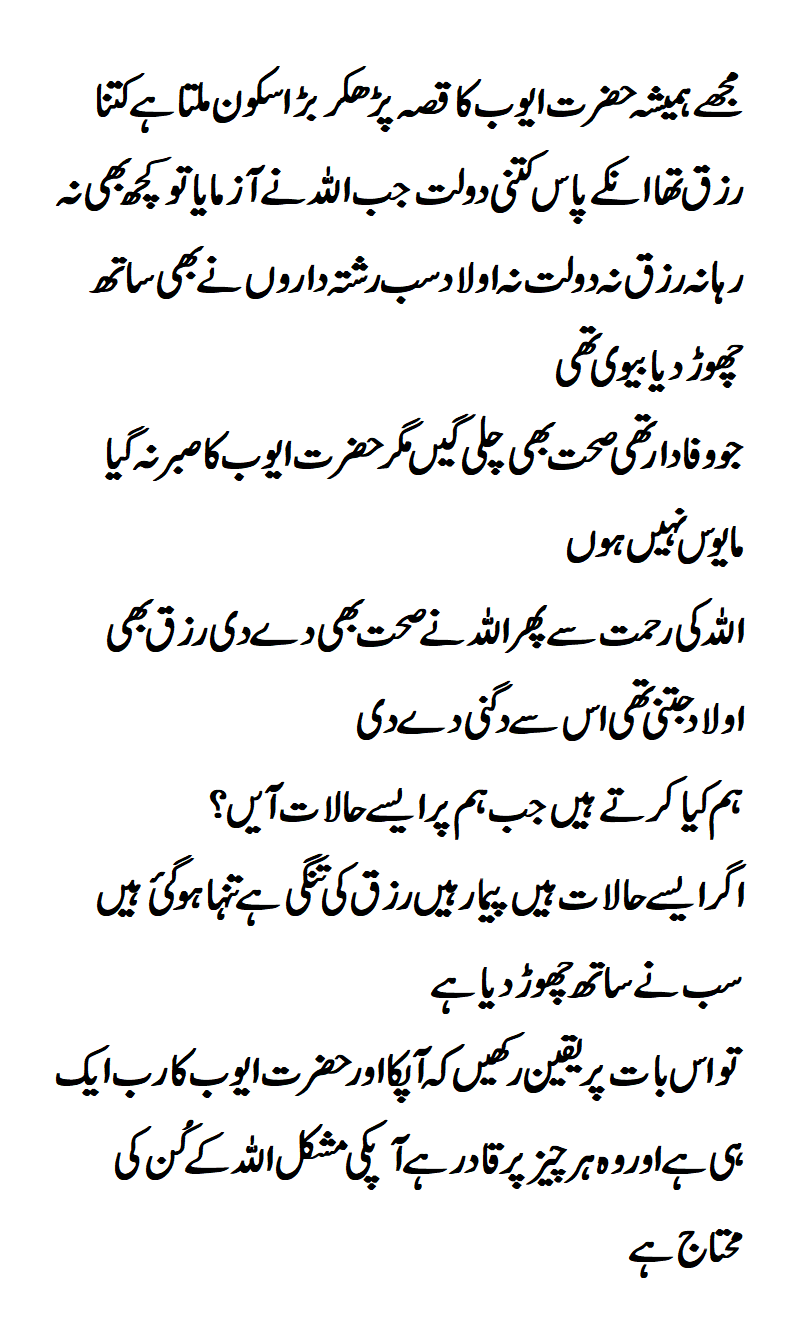Every person is faced with trials and tribulations at one point or another in their lives. It is patience that helps the believer cope. When calamity befalls a patient believer, it does not crush him. Instead, the believer endures, persists, and has hope in the mercy of Allah and the rewards that are awaiting him on the Day of Judgment.
Patience is a virtue that you can work on to develop.
There is much to learn from the story of Prophet Ayyub, as he is the ideal example of the afflicted believer who remained patient and faithful to His Lord.

Prophet Ayyub (peace be upon him) was mentioned in the Holy Qur’an four times. He resided in the region that is now Syria. Prior to his illness, Prophet Ayyub was an extremely wealthy man. He possessed treasures of gold and silver, and he owned land, farms, fields, and cattle. He also had many children.
Scholars say that the illness overtook Prophet Ayyub when he was seventy years old. The illness was so severe; historians have written that not a single limb of Ayyub was free from disease except his tongue and his heart, which he used for the remembrance of Allah. He lost his children and his whole family except his wife who remained devoted to him.
Historians have recorded different durations and the extent of the Prophet’s illness. Some claimed his illness lasted three years, others claim seven years, and others claim eighteen years. Regardless of the exact number of years, we can certainly know that Prophet Ayyub patiently bore his illness for a very long time.
Never did Prophet Ayyub lament, grow angry, or reject the fate which Allah had decreed for him. Day and night, throughout the pain and difficult times, Prophet Ayyub would praise his Lord.
What inspired such patience? Why did he not lose it?
Prophets and pious believers know that Allah tests His servants with trials and tribulations to test their patience, raise their rank in Paradise, and erase the sins they have committed. In fact, calamities that befall a Muslim should not be perceived as a disaster that will ruin his/her life, but as a sign that Allah loves him/her. For some Muslims, it is the wake-up call they need to turn to Allah and repent, which is actually a blessing in disguise
